With so many choices on the market, it can be difficult to decide what type of flooring is right for you. You can go with traditional hardwood, carpet, or tile; or you can try something new, like waterproof laminate or vinyl plank. Both of these choices have advantages and drawbacks, so which is the best option for your house? In this article, we will compare them.
What is Laminate Flooring?
Laminate floors are available in many different styles, colors, and designs to match any home décor. Laminate floors are also easy to install and can be placed over most existing flooring types.
Vinyl plank flooring is a composite material flooring that has many layers of materials pressed together. The top is a transparent wear layer that protects the artwork underneath it. [1]
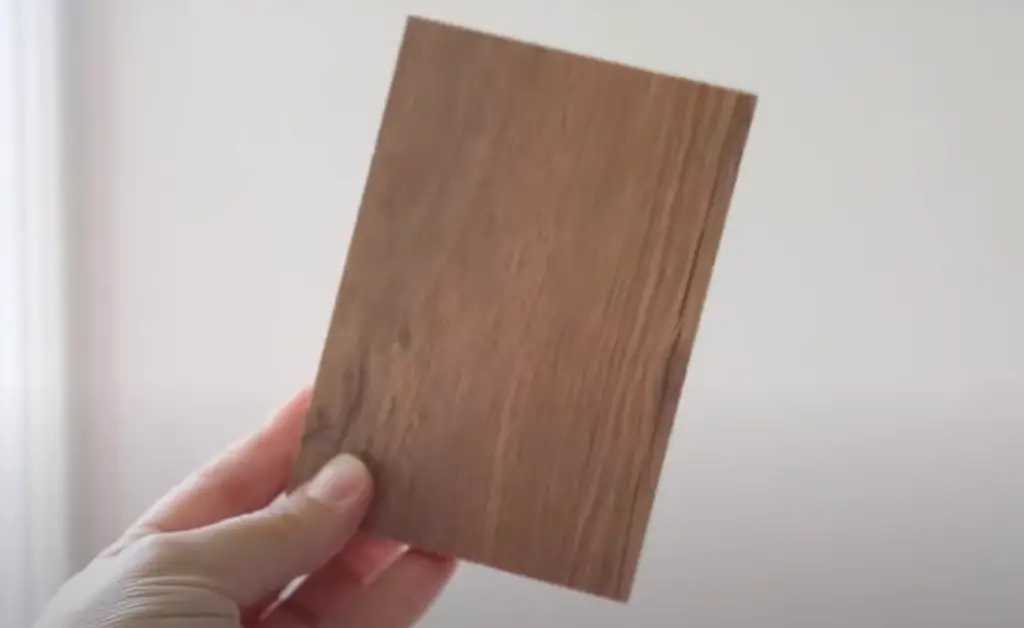
Vinyl flooring comes in a wide range of designs to match any decor.
Vinyl Plank vs. Laminate Construction
The principal difference between the two is in the middle layer. Vinyl floors have a core layer made from 100% virgin PVC, while laminate floors have a core layer made from HD fiberboard or particleboard.
The type of material used in the middle layer affects several aspects of the flooring, including stability, water resistance, and durability:
- Stability: HDF is a much denser material than particleboard, so lam. floors that have an HDF core are more stable than those with a particleboard core. This increased stability is especially important in homes with children or pets because it helps prevent the floor from denting or scratching easily;
- Water Resistance: The PVC used in vinyl floors is 100% waterproof, while the materials used in lam. floors are only water-resistant. This means that vinyl floors can be installed in any room, including bathrooms and kitchens. Laminate floors should not be installed in rooms where there is a lot of moisture because they can swell and warp when exposed to water;
- Durability: Both floors are designed for durability, but vinyl floors are more resistant to scratches and scuffs than laminate floors. This is because the wear layer on vinyl floors is made from a harder material;
Unlike other types, vinyl plank floors are much more durable and can better withstand daily wear and tear, making them ideal for homes with kids or pets. However, both types of flooring are designed to last for many years with proper care and maintenance.
Are Laminate and Engineered Wood the Same?
They are two diverse types of flooring. Lam. floors are made from multiple layers of materials bonded together, while eng. wood floors have a solid wood top layer and a plywood base.
Engineered wood floors are more stable because they do not expand and contract as much when exposed to changes in temperature or humidity.
Although both options can be placed atop most other kinds of flooring, eng. wood is not ideal for rooms that are often wet, such as bathrooms or kitchens. Lam. floors can be installed in any room.
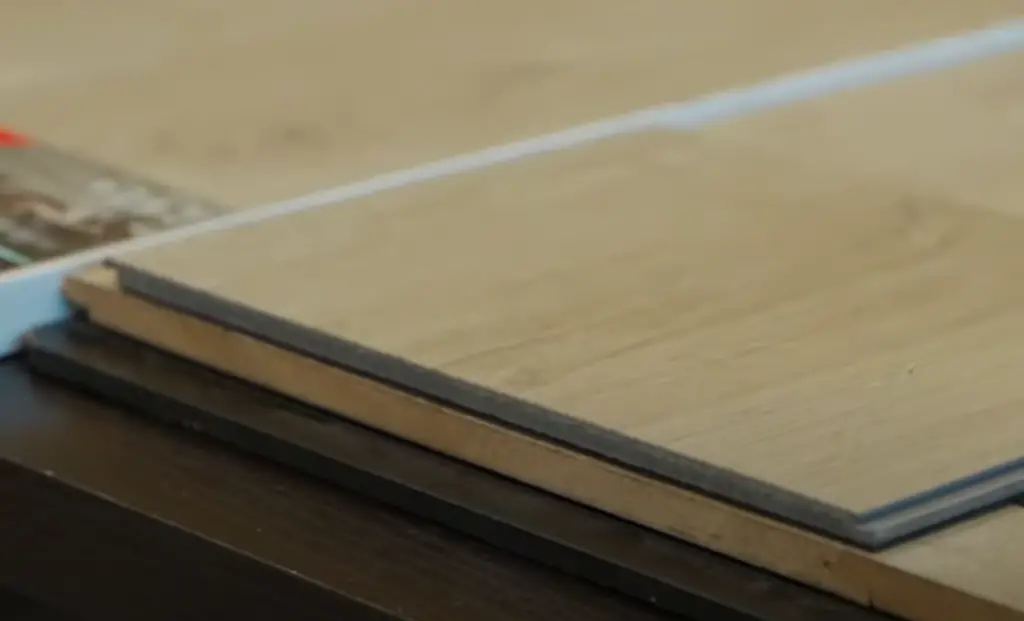
Vinyl Plank vs. Laminate: Similarities
Let’s take a look at the similarities:
- Both floors are designed for durability;
- Both floorings can be installed over most existing flooring types;
- Laminate and vinyl floors are available in diverse styles, colors, and designs;
- Both types are easy to install and require little maintenance [2];
Vinyl Plank and Laminate Are Less Expensive Than Real Wood
Of course, budget is always a consideration when choosing the floor. And in that respect, both have an advantage over real wood floors. They are mass-produced, and they are usually less expensive than solid hardwood floors.
Laminate is typically less costly than luxury vinyl, but there are some high-end laminates that can compete with the price of mid-range vinyl products. In general, though, you’ll get more bang for your buck with laminate.
If you’re looking for a low-budget option, go with laminate or vinyl rather than solid hardwood.
Vinyl Plank and Laminate Are Easy to Install
Anyway, when it comes to installation, there are a few important distinctions between the two. For instance, laminate planks must be clicked or snapped together in order for them to properly connect, whereas vinyl planks have a tongue-and-groove system that makes them easy to connect without any tools.
Another key difference is that vinyl flooring can be installed over almost any type of subfloor (including concrete, plywood, and even existing hardwood floors). Laminate must be installed over a smooth surface in order for it to lay flat and avoid any potential buckling or bowing.
So, if you’re planning on installing your new floors yourself, then vinyl might be the way to go since it’s slightly easier and more versatile. However, if you have a concrete subfloor or an existing hardwood floor that you want to cover, then laminate is probably your best bet.
Both Options Are Easier to Care For than Hardwood
Another big selling point of laminate and vinyl flooring is that they are much easier to care for than traditional hardwood floors. Hardwood floors require systematic sweeping and mopping to remove dirt and dust, and they also need to be regularly sealed and polished in order to protect them from water damage.
Laminate and vinyl are both waterproof materials that are designed to withstand spills and splashes. And while you still need to sweep and mop them on a regular basis, you don’t have to worry about water damage or sealants. Simply put, they’re low-maintenance options that are perfect for busy families or anyone who doesn’t want the hassle of caring for traditional hardwood floors.
So, if you’re looking for a durable and easy-to-care-for flooring option, then laminate or vinyl might be the way to go.
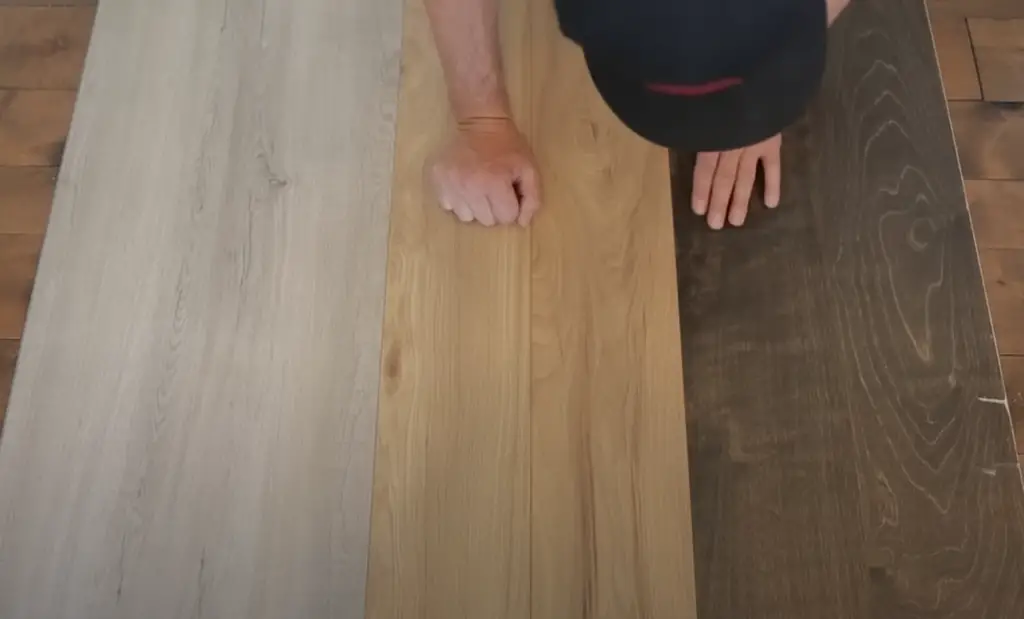
Which Type of Flooring Adds More Resale Value to a Home?
If you’re looking for a classic look, hardwood is always a good choice. But if you’re looking for something a little more unique, there are several options available. Let’s look at the most popular types of flooring:
- Hardwood: Hardwood floors are traditional and ageless, making them an excellent investment if you want to increase the value of your property;
- Laminate: Laminate floors are a great alternative to hardwood floors if you’re looking for something more budget-friendly;
- Vinyl: Vinyl floors are becoming increasingly popular, thanks to their durability and water resistance. They’re also easy to care for and maintain, which is always a bonus;
- Tile: Tile floors are perfect for homes with kids or pets since they’re so easy to clean. They’re also a great choice if you’re looking for something more unique;
Vinyl Plank and Laminate Come in Various Patterns
Waterproof laminate comes in every color and pattern imaginable. You can find it in wood grain, stone, tile, and more. Some brands even offer w/proof laminate that looks like real hardwood.
Vinyl that mimics real hardwood is available from several businesses.
What Are the Advantages of Vinyl Plank vs. Laminate?
There are a few key advantages that vinyl has over laminate:
- It is completely waterproof, while laminate is only water resistant;
- It is more durable and scratch-resistant;
- It is easier to install;
Most Laminate Is Not Waterproof
If you’re searching for a flooring option that can withstand moisture, then vinyl plank is your best bet.
Another advantage is that it is more durable. Vinyl plank is made from multiple layers of PVC plastic which makes it very strong and durable. Laminate, on the other hand, is made from a thin layer of wood veneer over a particle board. This makes it more susceptible to scratches and dents.
If you have kids or animals, then opt for vinyl plank flooring because it is more resistant to wear and tear.
Vinyl is also easier to install than laminate. Laminate needs to be glued or nailed down, which can be time-consuming and messy. Vinyl plank comes in interlocking tiles that just snap together, so it’s much easier to install.
Finally, vinyl plank comes in a wider variety of colors and styles than laminate. Laminate is typically only available in wood-look styles, while vinyl plank comes in a wide range of colors and styles, including stone and tile.
Is Vinyl Plank Better than Laminate for Pets?
If you have a pet, you’re probably well aware of the accidents that can happen. Whether it’s a puddle of water from their bowl or an unfortunate “accident,” it’s important to have flooring that can withstand whatever your pet throws its way – figuratively and literally.
Vinyl plank is more durable and resistant to scratches and other damage. It’s also easier to clean, which is always a bonus when you have a furry friend in the house.
Of course, there are always exceptions to the rule. If you have a particularly large or heavy pet, laminate may be a better option since it’s less likely to dent under their weight. And if you have a pet that likes to chew on things, vinyl plank might not be the best choice since sharp teeth can damage it.
If you’re looking for a durable, easy-to-clean option, vinyl is probably your best bet!
Laminate Goes in Most Rooms, Vinyl Plank Goes Anywhere
Laminate is a versatile option that can be used in most rooms of the house. However, vinyl is even more versatile and can be used in any room.
Another benefit of the vinyl plank is that it’s completely waterproof, which makes it ideal for use in bathrooms and kitchens where spills are more likely to occur. Laminate is not waterproof and can be damaged by water, making it less suitable.
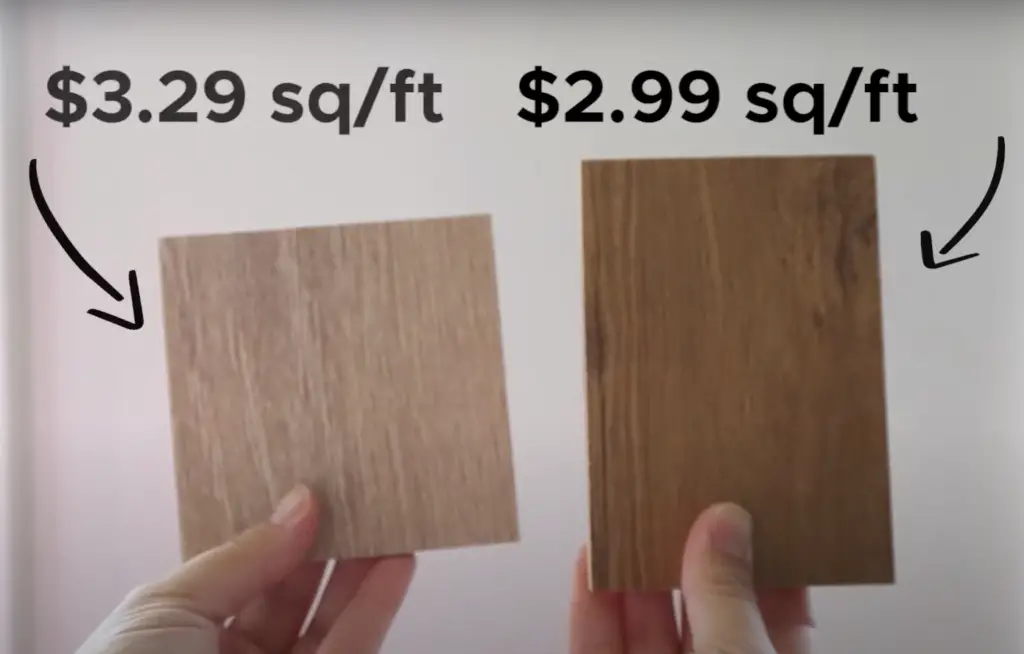
Vinyl Plank Flooring is More Durable than Laminate
Laminate is a hard surface, but it’s not as tough as vinyl. If you live in an area with high humidity or lots of traffic, your laminate floors might start to show wear and tear sooner than you’d like.
Vinyl is an excellent choice for busy families or anyone who wants floors that can take a beating. spills and splashes are no problem for vinyl plank – just wipe them up and you’re good to go. [3]
While some manufacturers offer w/proof laminate, it’s still not as resistant to water damage as vinyl.
Disadvantages of Vinyl Plank vs. Laminate
Vinyl plank does have a few disadvantages. One is that it can be more slippery, so it might not be the best choice for areas where there’s a lot of foot traffic or where spills are likely. It can also dent more easily than laminate, so it might not be ideal if you have kids or pets who are prone to accidents.
Another downside to vinyl plank is that it can discolor in direct sunlight. And finally, vinyl plank tends to be more expensive than laminate, so if you’re on a budget, laminate might be the better option.
If you want a durable, waterproof floor that’s easy to install and relatively inexpensive, laminate might be the way to go. But if you don’t mind spending a bit more money, the vinyl plank can offer a stylish, water-resistant option that’s easy to maintain. [4]
Vinyl Plank Is Not as Environmentally Friendly as Laminate
Vinyl plank is made from polyvinyl chloride. PVC is a relatively new material, and it’s not yet clear what its long-term effects will be on the environment. Some experts worry that it could release harmful chemicals into the air or water.
Laminate, on the other hand, is made from wood, a renewable resource. And while laminate floors do require energy and resources to manufacture, they can be recycled at the end of their lifespan.
Vinyl floors are made from PVC, which may release volatile organic compounds, into the air. These chemicals can be harmful to your health, causing respiratory problems, headaches, and other symptoms. Laminate floors are also made from VOC-emitting materials like formaldehyde resins.
However, laminate floors have a lower VOC emission rate than vinyl floors. And many manufacturers offer low-VOC or no-VOC options.
Laminate Flooring Is Quieter
Laminate is constructed in layers, with a thick, hardwood wear layer on top. Your chosen laminate flooring’s print or picture is hidden beneath the wear layer and is revealed as part of the decorative layer.
The core of laminate floors is made from either HDF or particleboard. These materials are then pressed together and fused under extreme heat and pressure to create a solid, sturdy piece. The backing material is then glued to the bottom of the plank to further stabilize it.
Vinyl flooring is also constructed in layers. The top layer is a clear film that protects the floor from dents and stains. The decorative layer is made up of the design or image of your selected vinyl flooring.
The core is made from either PVC or recycled plastic. These materials are then pressed together to create a piece that can withstand daily wear and tear.
Is Vinyl Plank Flooring Cheaper Than Laminate?
So, what’s the verdict? Both have their pros and cons, but we think vinyl flooring is the way to go — especially if you’re looking for a waterproof option. It’s also more durable and easier to install than laminate, which makes it a great choice for DIYers.
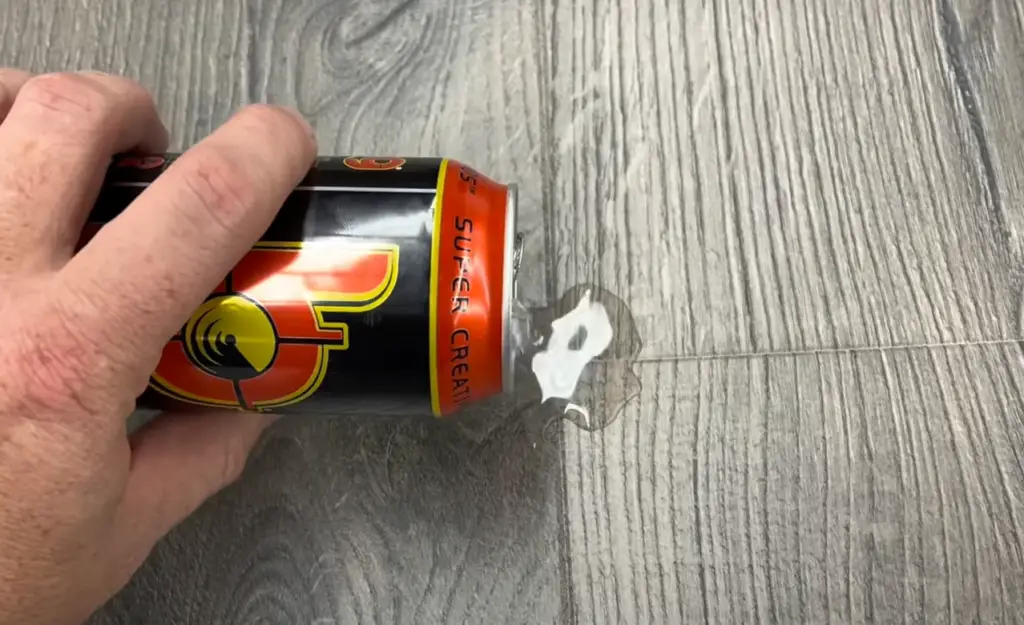
Key Differences Summarized
Here’s a quick rundown of the key differences between vinyl plank and laminate flooring:
- Vinyl is 100% waterproof, while laminate is only water resistant;
- Vinyl is more durable and scratch-resistant;
- Laminate is easier to install;
FAQ
Which is better: waterproof laminate or vinyl plank?
It depends on your needs and preferences. In this article, we’ll break down the pros and cons of each option to help you decide which is better for you.
Waterproof laminate flooring is made with multiple layers of HDF that are fused together with a waterproof resin. The top layer is a decorative paper that has been treated with an embossed finish or print design.
Vinyl flooring is made of PVC (polyvinyl chloride) that has been mixed with plasticizers to make it flexible. The planks are then printed with a design and topped with a wear layer.
Both options are 100% waterproof, but there are some differences that may sway your decision. Here are a few things to consider:
- Installation: W/proof laminate flooring is a floating floor, which means it’s not attached to the subfloor. This makes installation a bit easier and less messy since you don’t have to use adhesives. Vinyl flooring can be either glued down or floated, so installation is similar to laminate;
- Cost: W/proof laminate is typically more expensive than the vinyl plank. However, it’s important to factor in the cost of installation when making your decision;
- Appearance: W/proof laminate comes in a variety of wood grain designs, so it looks like real hardwood. Vinyl also comes in a variety of designs, including wood grain, stone, and tile [5];
Which is better quality – laminate or vinyl?
The answer to this question is a little more complicated than a simple yes or no. Both have their own set of pros and cons that you’ll need to consider before making a decision.
In terms of quality, laminate is typically more durable and scratch-resistant than vinyl. However, vinyl is made with thicker layers of material, so it tends to be more resistant to denting and staining.
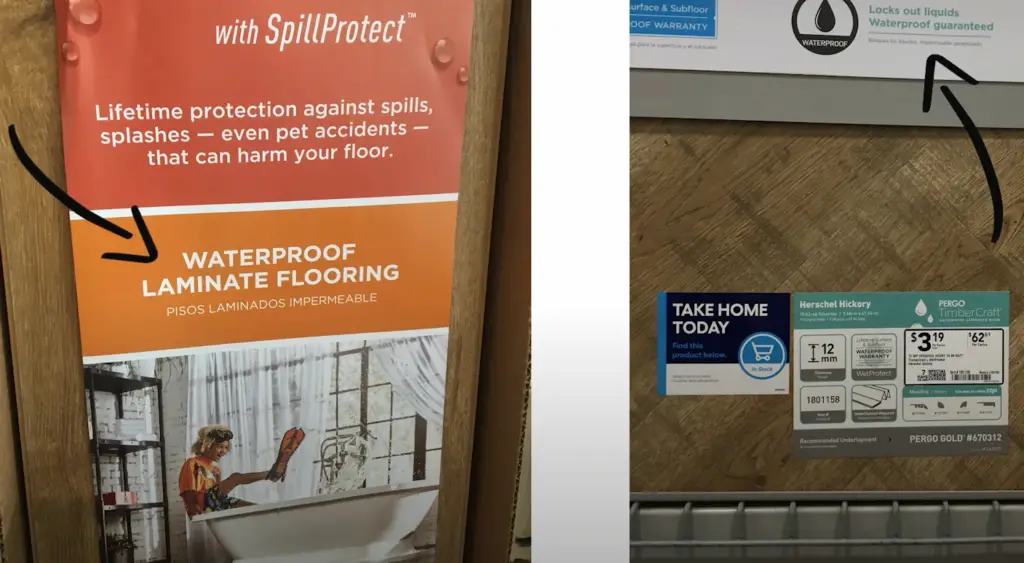
When it comes to water resistance, both laminate, and vinyl are good options. Laminate is water-resistant, but not waterproof. This means that if there’s a spill, you’ll need to clean it up right away to avoid damaging the floors. Vinyl is 100% waterproof, so you don’t have to worry about spills at all.
If you’re looking for a durable, scratch-resistant floor that’s easy to clean, laminate might be the better option. If you need a waterproof floor that can stand up to any spill or accident, vinyl is the way to go.
Which lasts longer laminate or vinyl flooring?
Vinyl flooring is designed to last for many years, even in high-traffic areas. Waterproof laminate floors are also built to withstand a lot of wear and tear, but they may not be as durable in the long run. [6]
Useful Video: Vinyl vs. Laminate Flooring Comparison
Conclusion
So, which is better? The answer, as with most things in life, is that it depends. It depends on your needs, your budget, and your personal preferences.
If you need a waterproof floor that can withstand heavy traffic and abuse, then vinyl plank is the way to go. However, if you’re looking for a more budget-friendly option that still offers some waterproof protection, then laminate might be the better choice.
Ultimately, the decision comes down to you. We hope this guide has helped you make an informed decision. Thank you for reading!
References:
- https://www.ambiencehardwoodflooring.co.uk/wood-flooring-guide/what-is-laminate-flooring/
- https://www.thespruce.com/vinyl-vs-laminate-flooring-1822800
- https://www.thisoldhouse.com/flooring/reviews/vinyl-vs-laminate-flooring
- https://www.flooringstores.com/blog/vinyl-plank-vs-laminate/
- https://www.firstclasswoodflooring.com/waterproof-laminate-flooring-vs-waterproof-vinyl-flooring/
- https://www.builddirect.com/learning-center/flooring/vinyl-vs-laminate-whats-the-difference/

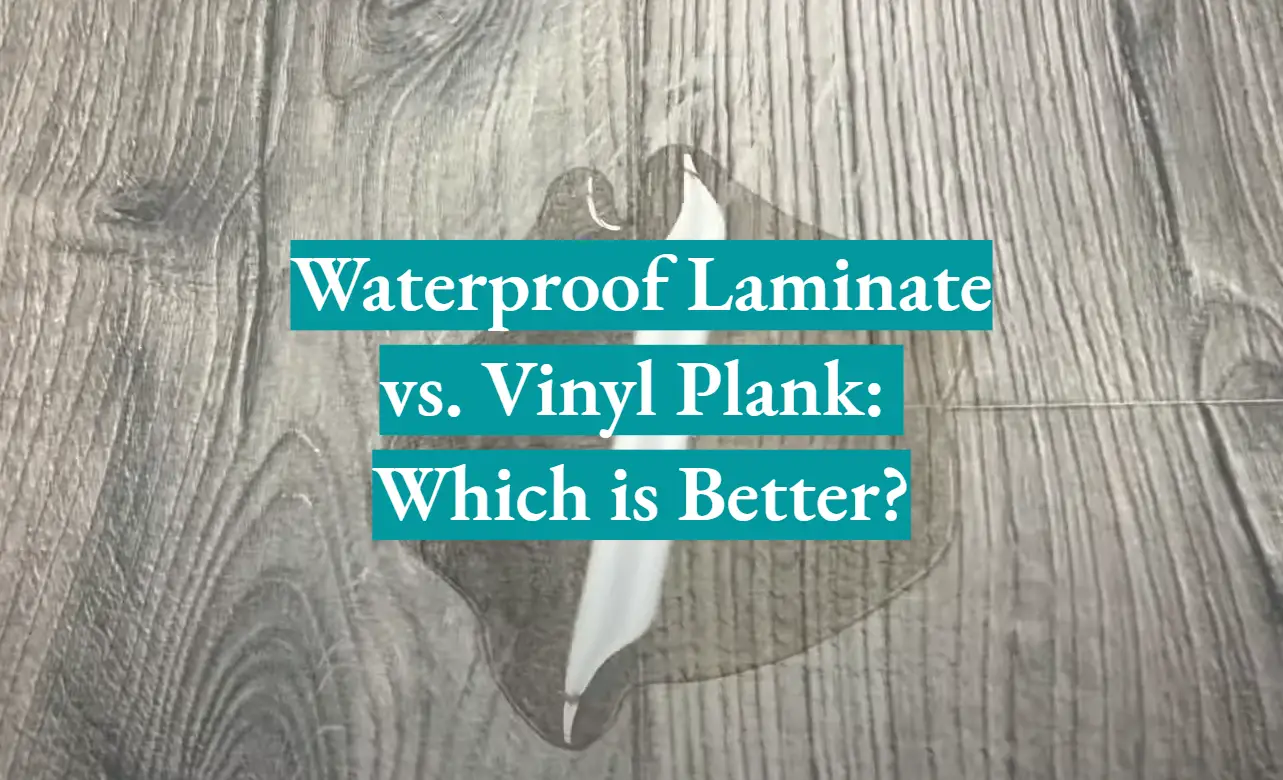

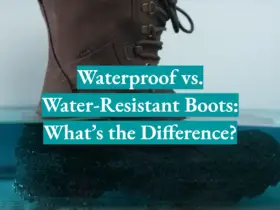

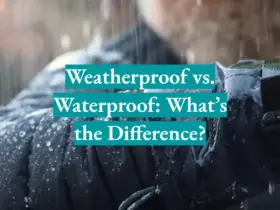
Leave a Reply